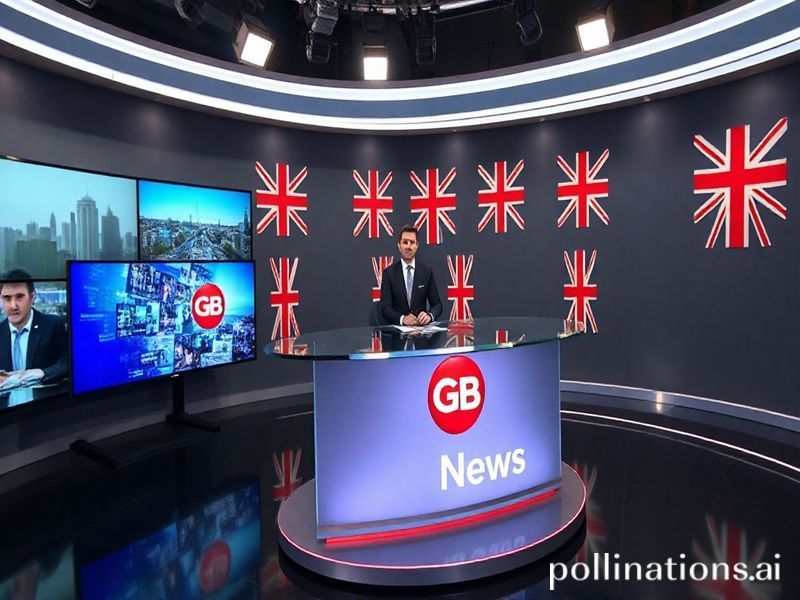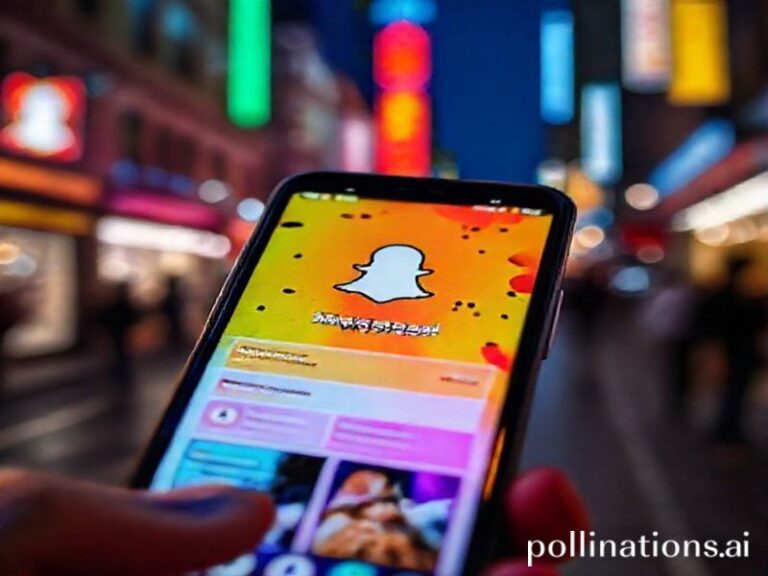GB News: How Britain Exported Its Midlife Crisis to the World
GB News: Britain’s Gift to the Global Misinformation Economy
By Our Man in the Departure Lounge, Watching the World Burn in HD
LONDON—In the beginning, there was the BBC: clipped vowels, stiff upper lips, and the faint smell of empire politely dying. Then came Sky, CNN International, Al Jazeera, and a parade of glossy pan-regional channels that taught the planet how to nod gravely while stock tickers slid by like anxious eels. Somewhere in that timeline, GB News was born—part start-up, part grudge, part accidental performance-art piece about what happens when a country mistakes nostalgia for policy and Twitter for a focus group.
From the outside, GB News looks like Britain’s latest export of controlled chaos, a sort of Poundland Fox News wrapped in Union Jack bunting. Its launch in June 2021 was heralded as the antidote to “metropolitan elites”—a phrase that, translated into any language, means “people who read books without pictures.” Investors from Dubai to Delaware tuned in, presumably to see whether a medium-sized island could monetise indignation at the same rate Americans have monetised Type 2 diabetes. Early reviews were mixed: critics called the lighting “haunted provincial disco,” while fans praised the channel for finally letting a retired Brexit Party MEP discuss fishing quotas at 3 a.m. in tones normally reserved for hostage negotiations.
Globally, GB News matters less for what it says than for how it says it—loudly, and with the confidence of a man who’s skimmed the Wikipedia page on macroeconomics. The channel’s editorial cocktail—equal parts grievance, nostalgia, and performative common sense—has become a template exported from Lagos to La Paz. Populist broadcasters from Warsaw to Manila now copy GB’s graphics package (aggressively italicised fonts, the color palette of a 1980s microwave dinner) and its business model: find an under-served demographic, tell them the modern world is a personal insult, sell them commemorative coins.
The international ripple effects are subtle but real. In Brussels, EU officials quietly add “GB News clip” to their PowerPoint decks labeled “Examples of Why We Need Digital Services Act.” At Davos, private-equity vampires debate whether outrage is recession-proof. Meanwhile, in newsrooms from Toronto to Tel Aviv, editors calculate the over/under on how long before their own governments greenlight a domestic variant—because nothing says “soft power” like outsourcing your culture wars to a studio in Paddington.
Of course, the numbers tell their own bleak little joke. GB News claims modest linear ratings—roughly the viewership of an enthusiastic regional bake-off—yet its YouTube clips reliably harvest millions of eyeballs, proving that nothing travels faster than a well-edited tantrum. Advertisers, skittish after early boycotts, have returned like penitent drunks, lured by bargain-basement CPMs and the promise of reaching “high-engagement, low-trust eyeballs”—marketing speak for people who will angrily share content they dislike.
There is, beneath the carnival, a serious geopolitical footnote. Britain once projected influence through fleets and later through the BBC World Service’s calm vowels of reason. Now it exports GB News, a channel whose signature move is asking a member of the House of Lords to explain why millennials can’t afford houses while a ticker screams about “WOKE COURTS.” It is soft power reimagined as a pub argument that forgot last orders. Our former colonies watch, bemused, wondering if this is some elaborate post-imperial prank—like shipping Piers Morgan to America and pretending it was an accident.
As the channel approaches its fourth birthday, the world has learned two lessons. First, outrage scales faster than nuance; second, the British accent—once shorthand for authority—can now sell conspiracies with the same plummy credibility it once lent to shipping forecasts. GB News may never topple governments, but it has already globalised the peculiarly British talent for dressing up panic as patriotism. The rest of us can only watch, half-horrified, half-impressed, like tourists staring at the Crown Jewels and realising the diamonds are actually cubic zirconia—yet somehow still priceless.







